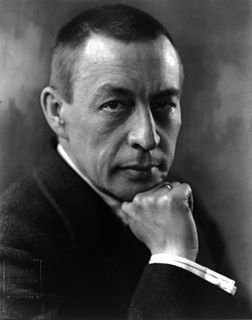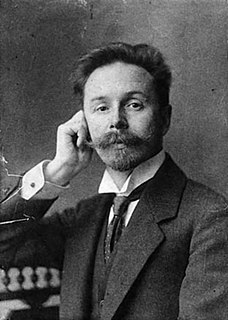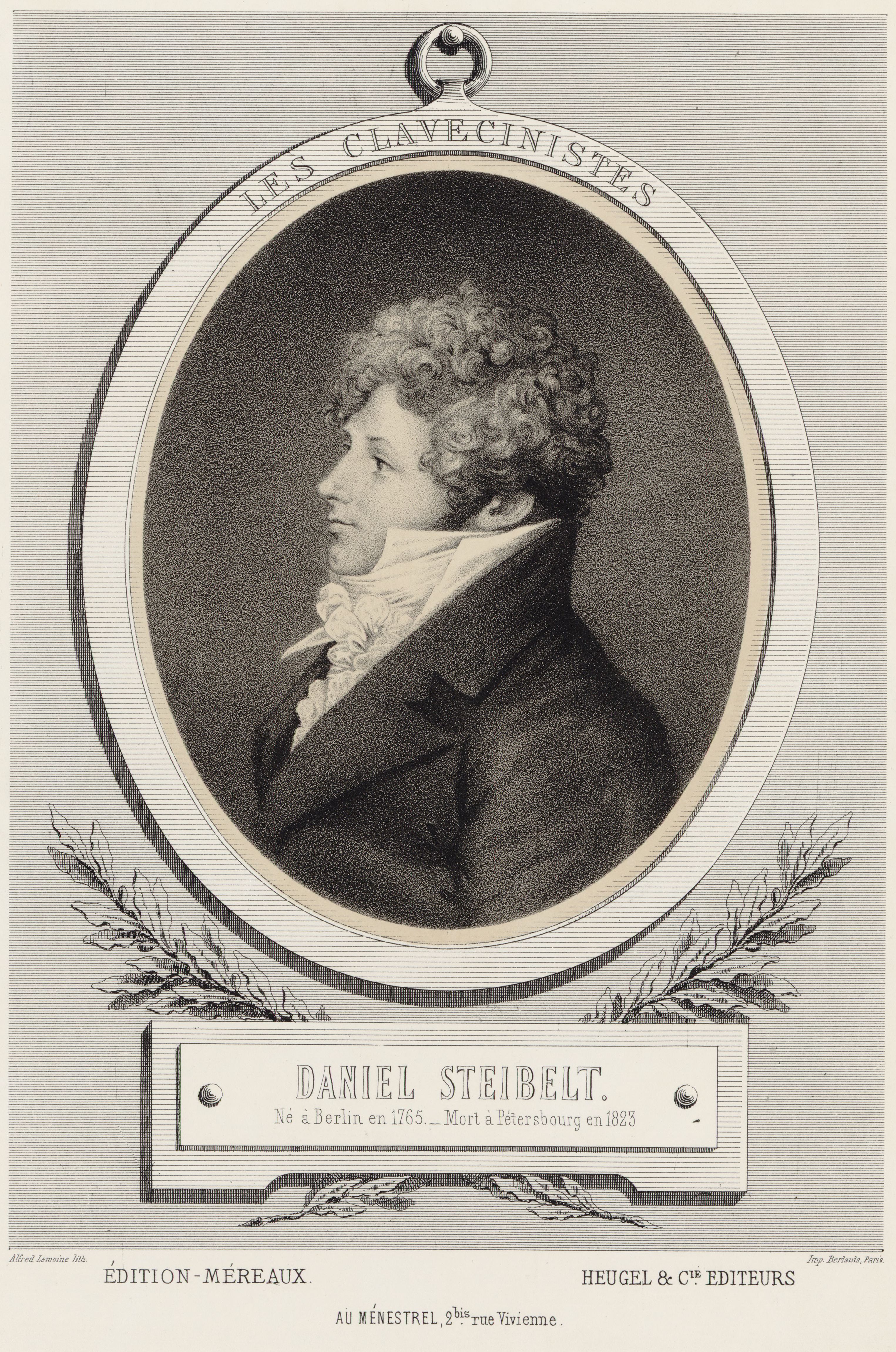Related Research Articles

Sergei Sergeyevich Prokofiev was a Russian Soviet composer, pianist and conductor. As the creator of acknowledged masterpieces across numerous music genres, he is regarded as one of the major composers of the 20th century. His works include such widely heard pieces as the March from The Love for Three Oranges, the suite Lieutenant Kijé, the ballet Romeo and Juliet—from which "Dance of the Knights" is taken—and Peter and the Wolf. Of the established forms and genres in which he worked, he created – excluding juvenilia – seven completed operas, seven symphonies, eight ballets, five piano concertos, two violin concertos, a cello concerto, a symphony-concerto for cello and orchestra, and nine completed piano sonatas.

Modest Petrovich Mussorgsky was a Russian composer, one of the group known as "The Five". He was an innovator of Russian music in the romantic period. He strove to achieve a uniquely Russian musical identity, often in deliberate defiance of the established conventions of Western music.

Sergei Vasilyevich Rachmaninoff was a Russian composer, virtuoso pianist, and conductor of the late Romantic period. The influence of Tchaikovsky, Rimsky-Korsakov, Balakirev, Mussorgsky, and other Russian composers is seen in his early works, later giving way to a personal style notable for song-like melodicism, expressiveness and rich orchestral colours.
In musical composition, the opus number is the "work number" that is assigned to a musical composition, or to a set of compositions, to indicate the chronological order of the composer's production. Opus numbers are used to distinguish among compositions with similar titles; the word is abbreviated as "Op." for a single work, or "Opp." when referring to more than one work.

Anton Grigoryevich Rubinstein was a Russian pianist, composer and conductor who became a pivotal figure in Russian culture when he founded the Saint Petersburg Conservatory. He was the elder brother of Nikolai Rubinstein who founded the Moscow Conservatory.

Pauline Viardot was a leading nineteenth-century French mezzo-soprano, pedagogue, and composer of Spanish descent.

Alexander Nikolayevich Scriabin was a Russian composer and pianist. Scriabin, who was influenced early in his life by the works of Frédéric Chopin, began his career with composing works that are characterised by a highly tonal idiom. Later, independently of Arnold Schoenberg, Scriabin developed a substantially atonal and much more dissonant musical system, which accorded with his personal brand of mysticism. Scriabin was influenced by synesthesia, and associated colours with the various harmonic tones of his atonal scale, while his colour-coded circle of fifths was also influenced by theosophy. He is considered by some to be the main Russian Symbolist composer.
The mazurka is a Polish musical form based on stylised folk dances in triple meter, usually at a lively tempo, with character defined mostly by the prominent mazur's "strong accents unsystematically placed on the second or third beat". The mazurka, alongside the polka dance, became popular at the ballrooms and salons of Europe in the 19th century, particularly through the notable works by Frédéric Chopin. The mazurka and mazur are often confused in Western literature as the same musical form.

John Field was an Irish pianist, composer, and teacher. Field is best known as the inventor of the nocturne, but there is evidence to suggest that this is a posthumous accolade. He is mentioned in passing in War and Peace when Countess Rostova calls on the Rostov household musician to play her favourite nocturne.

A piano concerto is a type of concerto, a solo composition in the Classical music genre which is composed for a piano player, which is typically accompanied by an orchestra or other large ensemble. Piano concertos are typically virtuoso showpieces which require an advanced level of technique on the instrument, including melodic lines interspersed with rapid scales, arpeggios, chords, complex contrapuntal parts and other challenging material. When piano concertos are performed by a professional concert pianist, a large grand piano is almost always used, as the grand piano has a fuller tone and more projection than an upright piano. Piano concertos are typically written out in music notation, including sheet music for the pianist, orchestra parts for the orchestra members, and a full score for the conductor, who leads the orchestra in the accompaniment of the soloist.

Toccata is a virtuoso piece of music typically for a keyboard or plucked string instrument featuring fast-moving, lightly fingered or otherwise virtuosic passages or sections, with or without imitative or fugal interludes, generally emphasizing the dexterity of the performer's fingers. Less frequently, the name is applied to works for multiple instruments.

Edison Vasilievich Denisov was a Russian composer in the so-called "Underground", "alternative" or "nonconformist" division of Soviet music.

The N. A. Rimsky-Korsakov Saint Petersburg State Conservatory is a school of music in Saint Petersburg, Russia. In 2004, the conservatory had around 275 faculty members and 1,400 students.

The Moscow Conservatory, also officially Moscow State Tchaikovsky Conservatory is an educational music institution located in Moscow, Russia. It grants undergraduate and graduate diplomas in musical performance and musical research. The conservatory offers various degrees including Bachelor of Music Performance, Master of Music and PhD in research.

Nikolai Karlovich Medtner was a Russian composer and pianist. After a period of comparative obscurity in the twenty-five years immediately after his death, he is now becoming recognized as one of the most significant Russian composers for the piano.

Daniel Gottlieb Steibelt was a German pianist and composer. His main works were composed in Paris and in London, and he died in Saint Petersburg, Russia.
Mateo Falcone is a one-act opera composed by César Cui during 1906–1907. The libretto was adapted by the composer from Prosper Mérimée's like-named story from 1829 and Vasily Zhukovsky's verse rendering thereof. It was premiered on 14 December 1907, at the Bolshoi Theatre in Moscow. The premiere production of Mateo was a failure; the work never became part of the standard operatic repertoire in Russia, and seems never to have been performed again.
Nicolai Alexeyevich Titov was a Russian composer.
References
- ↑ Sadie, Julie Anne; Samuel, Rhian (1994). The Norton/Grove Dictionary of Women Composers (Digitized online by Google Books). Retrieved 4 October 2010.
- ↑ Continuo: Volume 22. 1998.
| This article on a Russian composer is a stub. You can help Wikipedia by expanding it. |